In 19 July last year, 68 countries joined the Kingdom of Bhutan in co-sponsoring a resolution entitled ‟Happiness: Towards a holistic approach to development,” which was adopted by consensus by the 193-member UN General Assembly. In follow up to the resolution, the Government of Bhutan has convened a high level meeting on 2nd April 2012 at the United Nations headquarters in New York.
The meeting was very constructive and lively and very encouraging progress was made towards promoting a global movement for implementing a new economic paradigm based not on GDP but on taking in account people’s life satisfaction and the respect of the natural environment.
In addition to Bhutan and Costa-Rica, the governments of Brazil and Japan have taken significant steps to include GNH in the national agenda.
On this occasion, United Nations Secretary General, H.E. Ban Ki-moon said: ‟Material prosperity is important, it is far from being the only determinant of well-being. [
] Bhutan has recognized the supremacy of national happiness over national income since the early 1970s. It has famously adopted the goal of Gross National Happiness over Gross National Product. Such thinking is now gaining ground in other regions. Costa Rica is well known for being the greenest country in the world — an example of holistic and environmentally responsible development. Compared to other countries with similar income levels, it ranks higher in human development and is a beacon of peace and democracy.
In the United Kingdom, statistical authorities are experimenting with ‟National Well-being”.
The European Commission has its ‟GDP and Beyond” project.
And the Organization for Economic Cooperation and Development (OECD) has its guidelines of measurement of well-being.
Gross National Product has long been the yardstick by which economies and politicians have been measured. Yet it fails to take into account the social and environmental costs of so-called progress. We need a new economic paradigm that recognizes the parity between the three pillars of sustainable development. Social, economic and environmental well-being are indivisible. Together they define gross global happiness. [
]
The world stands at a crossroads. We need everyone — government ministers and policy makers, business and civil society leaders, and young people — to work together to transform our economies to place our societies on a more just and equitable footing and to protect the resources and ecosystems on which our shared future depends. We need an outcome from Rio+20 that reflects this. An outcome that says that happiness and well-being are measured in more than gross national income — and that they are fundamental goals in themselves.”
The proceeding can be seen at http://www.gnhc.gov.bt/2012/04/un-webcast-on-happiness-and-wellbeing-high-level-panel-discussion/
My modest contribution comes at 1.58:30 on PART I (the lower window of the opening screen).
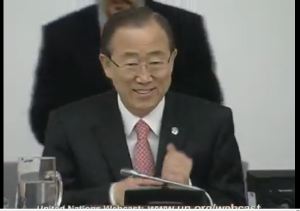
H.E Ban Ki-moon, Secretary-General of the United Nations
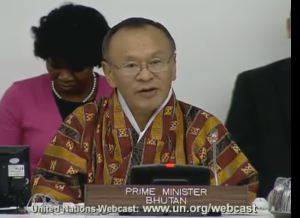
H.E Jigmi Y. Thinley, Prime Minister of Bhutan
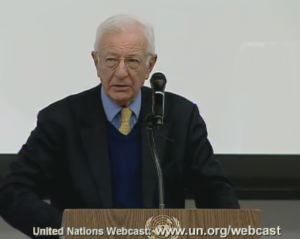
Lord Richard Layard,_Emeritus_Professor, London_School_of_Economics.
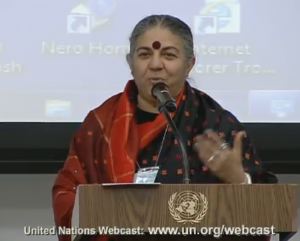
Dr Vandana Shiva, Founder of Navdanya
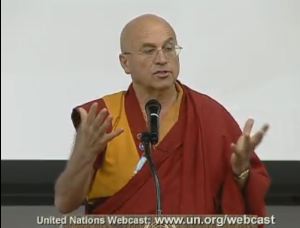
Matthieu Ricard, Shechen Monastery